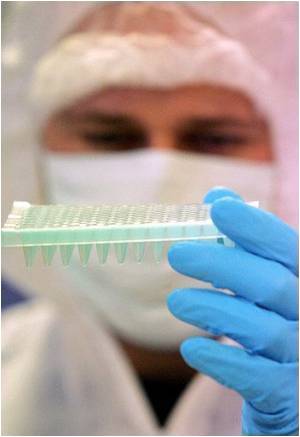
When they removed the protein from the cancer cells, the levels of oxidative stress (called reactive oxygen species or ROS) increased and an important signaling activity called NF-kB were reduced. As a result, the cells ceased growing and invading.
"They did not thrive. Cancer cells can use this as a weapon to keep oxidative stress at a level that is toxic to normal cells but can be tolerated by cancer cells," he said. This ability to withstand oxidative stress is one reason cancer cells can resist anti-cancer drugs, he said.
"Our data show that this protein is highly expressed in cancer cells lines and in patients," he said.
This makes thioredoxin-like 2 (also called glutaredoxin 3) a promising target of future drug development, said Cheng.
"We could use an inhibitor to reduce the levels of the protective protein. When the reactive oxygen species levels go up, it kills the cancer," he said. He thinks this protein plays an important role in the spread of cancer or metastasis.
Advertisement
"Cells that lack this protein cannot survive," he said. "The difference is that cancer cells produce too much and they survive as well.
Advertisement
Source-Eurekalert














